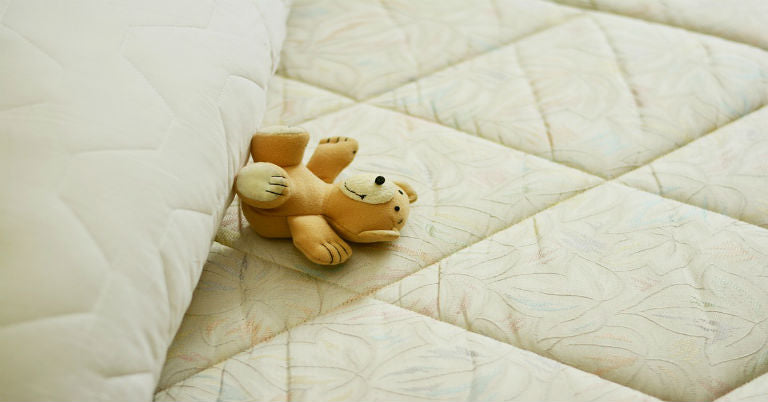Stopping Pests From Pestering You And Your Organic Mattress

Bed bugs are a growing problem in the United States. According to the National Pest Management Association, bed bug-related calls to pest control professionals have increased by 70% in the last five years. They can be found in all fifty states in addition to other parts of the world (especially the United Kingdom and smaller sections of Europe), but the majority of their population is concentrated in North America.
Bed bugs are quite the prolific travellers; oftentimes all they have to do is hitch a ride in a vacationer’s luggage, and they have a guaranteed free trip to their next meal. Many experts believe this is why they are especially prevalent in the United States -- Americans’ propensity for wanderlust has made us especially vulnerable to an insect that doesn’t mind stowing away in someone’s suitcase for weeks on end until it can find the right spot to nest. Consider the fact that bed bugs can survive without feeding for up to a year, and we can feel comfortable coming to the conclusion that the bed bug is a creature that has almost perfected the delicate symbiosis that is found between humans and many insects.
So what can you do to prevent them from invading your home and, eventually, your mattress? Despite what pest control experts may tell you, there is no perfect way to eradicate them completely. Remaining vigilant is the key to keeping them away from your domicile, your family, and your mattress. Below are some steps you can take to maximize your chances at never seeing an infestation in your home.
Buy a mattress protector
Adding a physical barrier between a mattress and bed bugs is an excellent way to stop them from getting into your bed in the first place. Any well-made organic mattress cover, such as the OMI Certified Organic Cotton Barrier offered by Sleep Organics, will make it that much harder for bed bugs to gain access to the nooks and crannies they love so much.
Clean those corners, clean that clutter!
Bed bugs don’t discriminate between dirty households and spotless households. Cleaning certain areas of your home that you may normally ignore can stop them from nesting. Studies have shown that bed bugs prefer living in locations with tight corners and edges such as baseboard junctions, bed frames, and headboards. Regularly vacuuming these potential nesting areas is a good way to make sure you don’t have any unwanted guests hanging out near your sleeping zone.
Bed bugs love bedrooms with lots of clutter. Furniture, boxes, and other items are perfect hiding spots for pests, so take the time to organize your sleeping space. Not only does organizing give less of an opportunity for bugs to congregate, maybe you can finally avoid stubbing your toe on that old steamer trunk every morning.
Inspect and clean your mattress regularly
Bed bugs are most likely to nest in your mattress than in any location in your home. Since you spend about a third of your entire life sleeping, it only makes sense that bed bugs will want to stay as close to your slumber spot as possible. That’s why it’s important to inspect and clean your mattress on a regular basis!Since mattresses normally come in lighter colors, it’s easy to do a quick inspection -- simply remove your sheets and check the edges and seams of the mattress. Keep an eye out for:
- Brownish, apple seed-sized oval specks — these are mature bed bugs
- White, pinhead-sized dots — these are younger bed bugs
- Dark spots or stains — these are left after a bed bug feeds
As far as prevention goes, it pays to vacuum your mattress at least once a month. The more detritus there is on your mattress, the easier it is for pests to hide from your prying eyes.
Follow the steps above and you can minimize your exposure to bed bugs and other insects. A good organic mattress is an investment in your well being, so make sure that investment pays off. At Sleep Organics, our long-lasting, natural mattresses and bedding products are made with your health in mind — take a look at our selection starting here.

